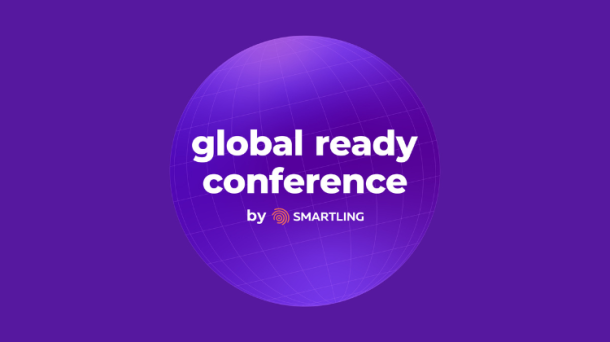Adrian Cohn
Head of Marketing
Smartling
During this time of year, we always like to reflect on our successes, work to identify areas for improvement, and fondly cherish the memories of another year behind us as we set our sights on the new year.
But it's also during this time that we focus on those around us, sharing with and caring for friends, family, coworkers, and those less fortunate. This is a time when generosity knows no borders.
At Smartling, we have been dedicated to the mission of building technology to service the localization industry for 10 years. Our goal has always been to revolutionize the process of translating digital content, to empower brands and organizations to provide their experience and connect communities, regardless of language, culture, and location.
We continue to strive to answer one critical question: how can we connect and share ideas, information, and knowledge around the world, no matter what language we speak?
As a leader in the localization industry, we want to help answer this question and solve this challenge across the globe, including for high risk communities and populations in crisis.
To continue our tradition, Smartling renewed its annual contribution to Translators without Borders (TWB), a nonprofit dedicated to raising awareness of language barriers and committed to providing communities with access to vital knowledge and information in their native language.
The organization is currently trying to raise $150,000 and a gift of any size can help to close the gap! In an effort to learn more about and how they work tirelessly to achieve their mission, Smartling had the chance to speak with Sharda Sekaran, Head of Fundraising and Communications at Translators Without Borders.
1. Could you share a bit more information on why TWB was started?
Translators without Borders was founded in response to the 2010 Haiti earthquake to help provide translation services to emergency and relief work, TWB expanded rapidly to meet the growing need to ensure vital, and often life-saving, information in formats and languages that people can understand in underserved populations across the globe.
Over half of the world’s population suffers from lack of access to information in their language. Language barriers prevent them from getting vital information and communicating their needs and ideas proactively.
In particular, people who are poor, less literate, and come from under-served languages, are left without a voice in the development of the places where they live, the future of their families, and in global conversations about important issues.
One of our first impact studies very clearly demonstrated the impact language can have. In Nairobi, we asked 200 self-identified English speakers questions about how a disease was spread.
The group that received the information in English were able to answer 16% of the questions correctly. The group that got the information in Swahili, however, got 92% of the answers correct. That’s the impact that getting information in your own language has - you can really understand it...and act on it.
2. Could you share an actual story that resulted from a contribution made this year?
Because of the support we get from generous individuals and companies, TWB is able to be nimble enough to respond in times of crisis. For instance, getting on the ground quickly in Mozambique this past spring to help survivors of Cyclone Idai get information they need in their own languages.
Mia Marzotto, TWB’s Senior Advocacy Officer, tells a moving story about the aftermath of the storm and Gustavo, a local high school teacher of English who quickly joined us to help translate critical information into and from Sena. Gustavo explained that people here are no strangers to natural disasters.
Yet, a lack of information ahead of Cyclone Idai meant that few were prepared for its devastating impact. Gustavo opened his home to host some of his neighbors and relatives who lost all their belongings.
And when he received an email from TWB asking for his availability to help, he said “yes” right away. “I took the invitation as an opportunity to assist those in need with written or oral information in their own language. This is one of the best things I can do to help my community get back on its feet.”
Funding from people like you means that we can do this quickly; without it, we might wait months to recruit people and find funding.
3. What is the team most concerned about in the next decade, and what are the key issues you will be focusing on?
Core to our vision for the future is Gamayun: The Language Equality Initiative. There is a severe lack of language data sets available for marginalized languages. This means that speakers of those languages are unable to access the vast amount of information that is available to the rest of us.
Gamayun is our solution. A collaborative effort with tech partners, native-speaker communities, NGOs, and content creators and owners, it uses text and speech data to automate translation in under-served languages.
Using a repeatable, scalable model, TWB and our coalition of partners, we are piloting three languages (Hausa, Levantine Arabic, and Tigrinya) to test and refine the process, with the aim of bringing 20 underserved languages online over the next ten years.
It's a revolutionary way to use cutting-edge technology for humanitarian benefit, closing the language equality gap and enabling rapid translation and two-way communications.
4. What small ways can we encourage our community, and those around us, to get involved if a monetary contribution is not possible?
In addition to donations, for which we are always immensely grateful, your community is welcome to join us as volunteers. We need people with language skills who are willing to donate their time to make this work possible.
We have a community of over 30,000 volunteer translators. They are the backbone of our work, and are the reason why we are able to have such a big reach as a small non-profit organization. Your community can also help by simply spreading the word about our fundraising efforts and our holiday giving campaign, ”Language is Life".
We know that your community appreciates how much language matters. They can be great ambassadors to raise awareness about the importance of TWB’s work, which can be less obvious to people who are not linguists, translators, or language experts.
5. In the last 10 years, what has been the biggest challenge TWB has been focusing on?
Keeping up with demand for what we do has been the biggest challenge! In just the past four years, TWB has grown by 900% and our number of volunteers has expanded by nearly 3000%.
We raise money for each new crisis but this crisis-specific funding might arrive in our bank account a year or more after we’ve delivered our services. TWB has an urgent need to build up our organizational infrastructure in order to be sustainable and prepared to meet increased demands for our work and urgent situations as they emerge. We want to remain nimble with a slim overhead, which we definitely are, as a 100% remote organization with no headquarters or office expenses.
However, we need to strengthen our infrastructure and develop enough of a reserve to be ready for rapid response situations and able to float cash-flow gaps. To address this, we’re working to increase our reserve to $1 million, and have set an immediate target of $150,000 as part of our holiday fundraising campaign, “Language is Life.”
The support from Smartling (and others) and the recognition that what we do is important not only for the most vulnerable, but also for the industry, has been one of the biggest factors in accelerating our growth.
6. How far does a $5,000 gift go? What sort of initiatives or programs will these gifts help fund directly?
Translators without Borders has been called “the little organization that is getting things done.” A $5,000 gift goes a long way for us. For instance, $5,000 is enough to develop a translation team for a low-resource language like Tigrinya, Kanuri or Somali.
We are doing this right now for Nande in eastern Congo: we are recruiting translators and training a language lead. A language lead is a native speaker and expert in a language who manages and supports language projects and ensures we get the best datasets and have a strong community in that language.
$5,000 could help us put a marginalized language “on the grid,” so to speak.

.jpg)
